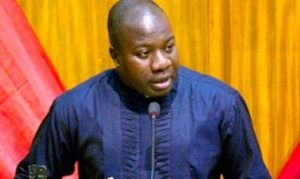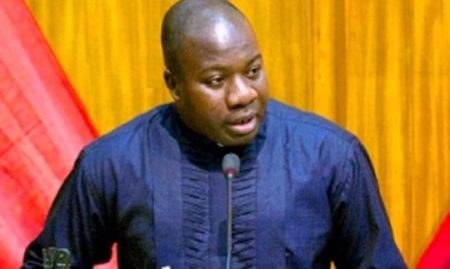In a recent engagement with the youth in Accra, Dr. Mahamudu Bawumia, the presidential candidate of the New Patriotic Party (NPP), articulated his vision for Ghana’s economic future, emphasizing his commitment to abolishing the controversial E-Levy if elected in the upcoming 2024 general elections. This taxation measure, which has faced significant criticism from various sectors of the population for its impact on digital transactions, has become a focal point in Bawumia’s campaign strategy. By pledging to eliminate the E-Levy, he aims to alleviate financial burdens on citizens and restore confidence in the digital economy, which has seen a rise in use amid the global push for technological advancement.
Bawumia’s commitment to enhance digital inclusion is further demonstrated by his promise to eliminate import duties on mobile phones, which he sees as a crucial step towards making technology more accessible for Ghanaians. By removing these import taxes, he intends to ensure that smartphones are available at more affordable rates, thus allowing more individuals to participate in the digital economy. This initiative underscores his broader goal of bridging the current technology gap that exists within the country, which he believes is essential for fostering economic growth and empowering citizens through digital platforms.
Highlighting the importance of digital inclusion, Dr. Bawumia stated, “We will put smartphones and other phones in the hands of the Ghanaian people at an affordable rate.” His vision revolves around not only increasing access to technology but also promoting a culture of innovation and entrepreneurship among the youth. By equipping the younger generation with the necessary tools, he hopes to enable them to leverage digital resources for economic opportunities, thereby positioning Ghana as a competitive player in the global digital landscape.
In conjunction with these tech-focused initiatives, Bawumia has also proposed a tax amnesty for businesses burdened by overdue taxes. This measure aims to relieve financial pressures on struggling enterprises, allowing them to redirect their resources toward growth and job creation. By offering businesses a temporary reprieve from tax obligations, he believes that the move will stimulate economic activity, foster a more favorable business environment, and encourage entrepreneurship. The economic landscape of Ghana is in a state of flux, and these measures represent Bawumia’s integrated approach to revitalizing the economy through both digital innovation and support for local businesses.
Bawumia’s strategy, which centers on empowering citizens and businesses alike, is aimed at creating an ecosystem conducive to economic development. He recognizes that for an economy to thrive, both individuals and enterprises must have access to the necessary resources. By ensuring that mobile phones are affordable and accessible, and by alleviating the tax burdens on businesses, he believes that he can cultivate an environment where innovation flourishes, thereby leading to sustainable economic growth.
In summary, Dr. Mahamudu Bawumia’s pledges to remove the E-Levy, abolish import duties on mobile phones, and provide tax amnesty for businesses encapsulate his vision of a digital and economically inclusive Ghana. Through these initiatives, he intends to empower citizens, promote entrepreneurship, and create a vibrant digital economy that can withstand global challenges. As the 2024 elections approach, his focus on digitalization and economic support mechanisms may resonate with voters seeking change and improved living conditions in the country.














